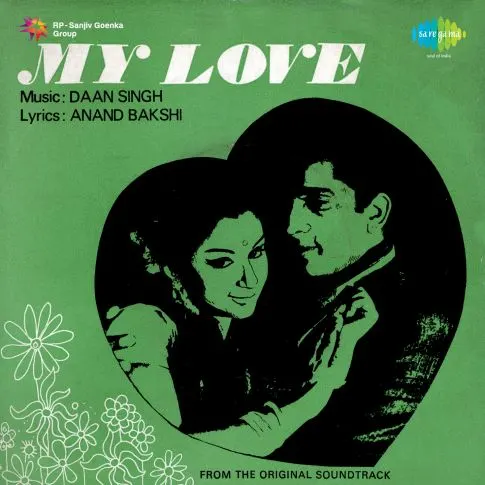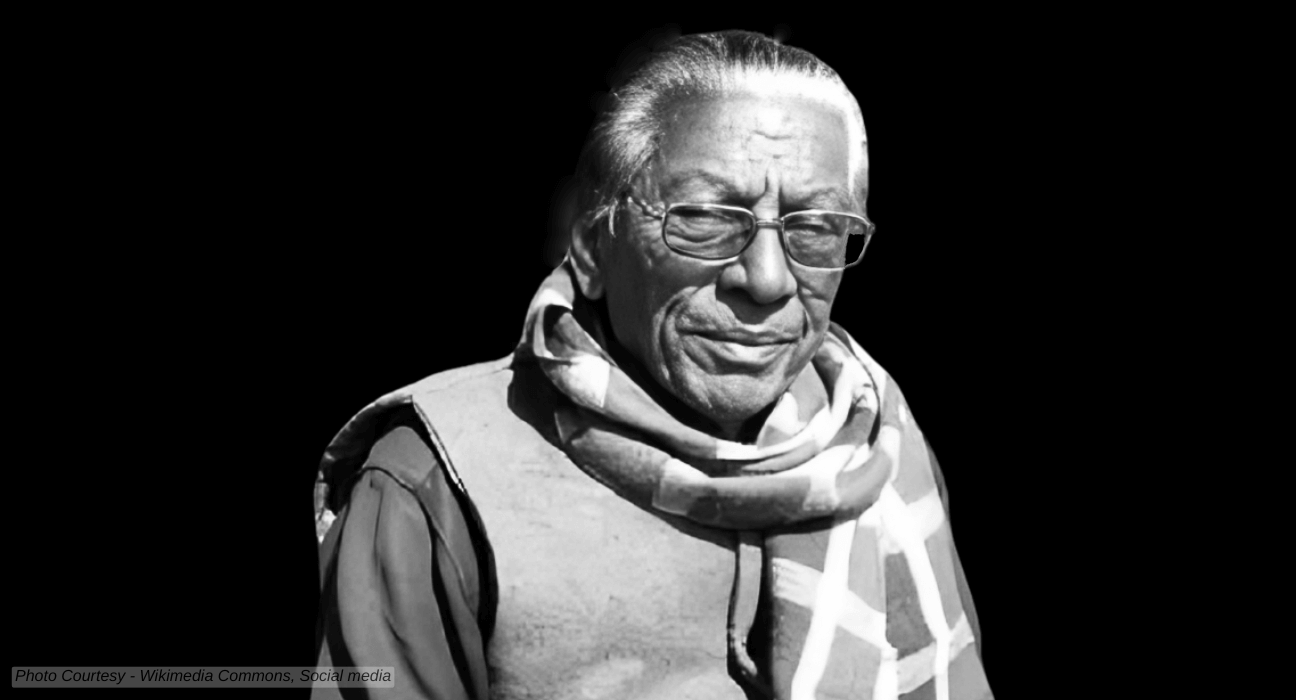Zikr Hota Hai Jab Qyamat Ka, Tere Jalwon ki Baat Hoti Hai.
The immortal Mukesh number talks about the beauty of the beloved being as mesmerising and impactful as the day of judgement. Music lovers are still in awe of the beauty of that song. But rarely does anyone know the name of its music director, Daan Singh. A luminary of music who is forgotten by us, his songs like “Mere Humnasheen Mere Humnawaan, Mujhe Tham Le,” “Gham-E-Dil Kis Se Kahoon,” “Woh Tere Pyar Ka Gham,” and “My Love Panzi Wongo” are still fresh in the minds of music lovers.
Early Life
Daan Singh was born in the mid-1930s somewhere in Rajasthan (probably in Jaipur) into a family where music was a household staple. A few sources claim that he was born in Lucknow in 1923. Daan Singh’s journey into the world of melodies was almost destined. His father, a teacher in the school of arts and an occasional khayal singer, laid the foundation for what would become a lifelong passion for Daan Singh.
There is not much information available on his ealy life. Even all of his work is not recorded. He remains largely an unknown name; he was not the most prolific, and he cannot get much work despite making beautiful music. According to sources, he was very principled and refused to compromise on his terms for the sake of fame or money.
Daan Singh The Musical Prodigy

In an interview, he reminisced about his childhood, revealing his talent for memorising tunes just by listening. At eight, during a marriage function in Lucknow, he heard that his father had lost an impromptu khayal gayiki competition. Determined, he rushed to the spot and insisted on competing. Despite the initial laughter, he sang “Teri baton se mujhko yeh zahir hua, ishq tera raha koi kangal se,” impressing everyone and becoming a little hero.
Few know that, as a teenager, he spent several weeks with renowned composer Khemchandra Prakash in Bombay. “I had travelled with a friend of mine, Y N Joshi, the screenplay writer of Vidya (1948), to Bombay. He had introduced me to him. I adopted Prakashji as my guru and used to stay at his Shivaji Park home.
Daan Singh worked almost all his life at All India Radio, Jaipur. Few know that, as a teenager, he spent several weeks in Bombay with renowned composer Khemchandra Prakash. He adopted Prakashji as his guru and stayed at his Shivaji Park home, learning and honing his craft under the guidance of the celebrated composer.
Daan Singh In Films
Daan Singh was supposed to make his debut as a music director with “Bhool Na Jaana (1965),” a film based on the 1962 Indo-China War. According to reports in newspapers, the film was banned by the Foreign Ministry due to its controversial dialogues. Other sources say that the financiers do not see any promise in the low-budget movie.
The movie was indeed low budget, but the music was exceptional. It has one of the best Geeta Dutt numbers, “Mere Humnashin Mere Humnawa.” It also has Mukesh’s “Pukaro Mujhe Naam Le Kar Pukaro,” and “Gham-E-Dil Kis Se Kahoon.” Other songs of the film were “Bahi Hai Jawan Khoon Ki Aaj Dhaara (Manna De),” “Choohe Daudo Billi Aayi (Suman Kalyanpur),” “Jhuka Lo Bade Bade Naina (Asha Bhosle),” and “Gora Gora Mukhda Yeh Tune Kahan Paaya Ha (Mukesh).”
Despite the success of the music in his first film, he got his next film in 1969. The film was action adventure saga “Toofan,” starring Dara Singh. It has peppy Asha Bhosle number “Laga Mohe Aab Ki Baar,” as well as the melodious “Husn Mein Bhi Hai Mazaa,” again sung by Asha. It also has catchy “Suna Tha Maine Bachpan Mein,” sung by Manna De.
Daan Singh’s “My Love“
Shashi Kapoor and Sharmila Tagore starrer My Love (1970) was his ticket to success. In the film he gave one of the best Mukesh songs, “Zikr Hota Hai Jab Qyamat Ka,” which is still a fan favourite, especially among Mukesh’s fans (like me). Daan Singh once said that the great Madan Mohan loved the way he had used raag Bhairavi in the song. “Arre raag Bhairavi to hum bhi istemal karte hain. Tune ye kaun sa sur mila diya?”
Daan Singh’s other most important song came in the form of the melancholic melody “Woh tere pyaar ka gham” in the same film, a song that provided solace to a generation of love-lorn hearts. Other songs of “My Love” include “My Love Panzi Wongo (Mohammad Rafi),” “Sunaate Hain Sitaare Raat Bhar (Asha Bhosle),” “Bheegi Bheegi Raat Mein (Asha Bhosle),” and “Guzar Gaye Jo Hasin Zamane (Asha Bhosle).”
The music of My Love was popular and acclaimed critically, but did nothing for Daan Singh. He remain in shadows.

Later Works
Despite his beautiful work, Daan Singh remains unknown to the general public and did not get the work of his choice. Slowly, he made his way away from the film industry and moved to Jaipur.
At the dawn of his life, international director “Jagmohan Mundra” rediscovered him. Mundra and Singh collaborated for the movie “Bawandar” in 2000. In the film he gave beautiful numbers like “Ab To Jagna Hi Hoga (Mahalakshmi Iyer), “Ghaghario (Sapna Awasthi),” “Aayo Holi (Sapna Awasthi, Ram Shankar),” “Panghat (Richa Sharma),” “Ab To Jaagya Sarsi (Deepti Naval),” and “Kesaria (Nadita das).”
The 2012 Rajasthani film “Bhobhar” was his last work. The song he composed was “Ugh Mhara Sooraj,” sung by Suman Yadav.
Despite crafting such gems, Daan Singh’s career in the film industry was not as elaborate as one might expect from a man of his talent. He spent his later years in Jaipur, working with AIR and composing sporadically. His health declined due to a liver ailment. Daan Singh passed away on June 18, 2011, in Jaipur, unsung and forgotten.
Daan Singh on IMDB














Leave feedback about this